Last Updated on January 10, 2023
Raising goats is always an adventure. Not only do they have more personality than any other farm animal, they are also the best utility animals on my farm. If you are interested in raising goats yourself, I have written this guide for you.
Introduction to Raising Goats
Raising goats can be a lot of fun. They can clean up brush, produce awesome milk, produce goat meat and can even pull a cart. If you are considering raising goats for any of these purposes, then I hope to answer your questions in the following guide.
With that being said, I have written this guide using a Q&A style to hopefully answer each individual question about raising goats that you might have.
In each section, I link to other articles I have written that cover certain topics more in-depth. Feel free to read those articles to learn more and then come back here to continue on.
My plan is to continually add new information to this guide. I’m treating it as an ever-evolving living document on raising goats.
I truly hope this guide is helpful and provides you with all the information you’ll need to start raising goats on your farm.
What type of goats should I raise?
Before you buy your first goats you should first determine your goals for raising goats? Do you want to use them to produce milk or meat? Or are you wanting to use them to clear brush?
Are you wanting to breed and sell them? Or do you just want to raise them as pets? Determining your goals for raising goats will help you choose which breed of goats you should raise which we will talk about in the next section.
Also, keep in mind that the temperament of a goat can vary greatly between each animal and even certain breeds. Some goats are sweet and act just like pets. Others can be mean and might give you the occasional headbutt if you turn you back on them. So it’s important that you choose the right ones.
You can tell pretty quickly the temperament of a goat simply by standing next to them. Are they afraid of you or do they come up to you.
If you are raising milk goats or goats as pets, having friendly goats that aren’t scared of you is pretty important. If you are raising meat goats or goats for brush removal, this is probably less important.
Keep all of this in mind when you are buying your goats.
What breed of goats should I raise?
If you want goats simply for brush removal then any breed of goat should do fine. Keep in mind though that the taller breeds are better at reaching higher up brush and limbs. If you are wanting to clear underbrush in the woods to make it easier to walk through then get taller goats.
If you want to raise meat goats then Boer Goats are the most popular breed. They get very large in a relatively short amount of time. They are also known for being docile.
Boer Goats are also one of the most popular breeds for 4H competitions. So if you are wanting to breed and sell goats then Boer Goats may be a great option.
Besides Boer Goats, there are also a few other popular meat goat breeds. These include Spanish Goats, Kiko Goats, Myotonic (Fainting) Goats, and Pygmy Goats.
If you are wanting to raise milk goats then look into Nubian Goats, Saanen Goats, Alpine Goats, LaMancha Goats, and Nigerian Dwarf Goats.
As far as personality goes, I have raised Nubians and they are my favorite. They also produce a lot of milk compared to other breeds and their milk has a high butterfat content making it great for things like cheese and soap.
What do goats eat?
Goats are ruminants and eat a plant-based diet which they are able to ferment in a special stomach before digesting it. Practically speaking, goats will eat grass, weeds, hay, grains, shrubs, bushes, tree leafs, fruits, and some vegetables.
Contrary to what a lot of people think, goats are browsers, not grazers. This means that goats will take a bite of different plants here and there instead of eating pasture evenly like a sheep or a cow would.
Because of this, goats are not great at keeping your lawn mowed. But what they are great at is clearing brush which is what I primary use them for on my farm.
What kind of goat feed do I need?
If you don’t have enough pasture or brush to feed your goats, you will have purchase some type of feed for them. This can include grain or hay.
If you plan on raising dairy goats, it is especially important that they receive proper nutrition so they can produce enough milk while staying healthy. You’ll want to look for goat feed made specifically for dairy goats.
You can buy your goat feed from a local feed store or you can buy goat feed online if there aren’t any local feed stores in your area.
When buying hay, check out Craigslist or Facebook Marketplace. A square bale can cost you anywhere from $2 – $5 depending on where you live.
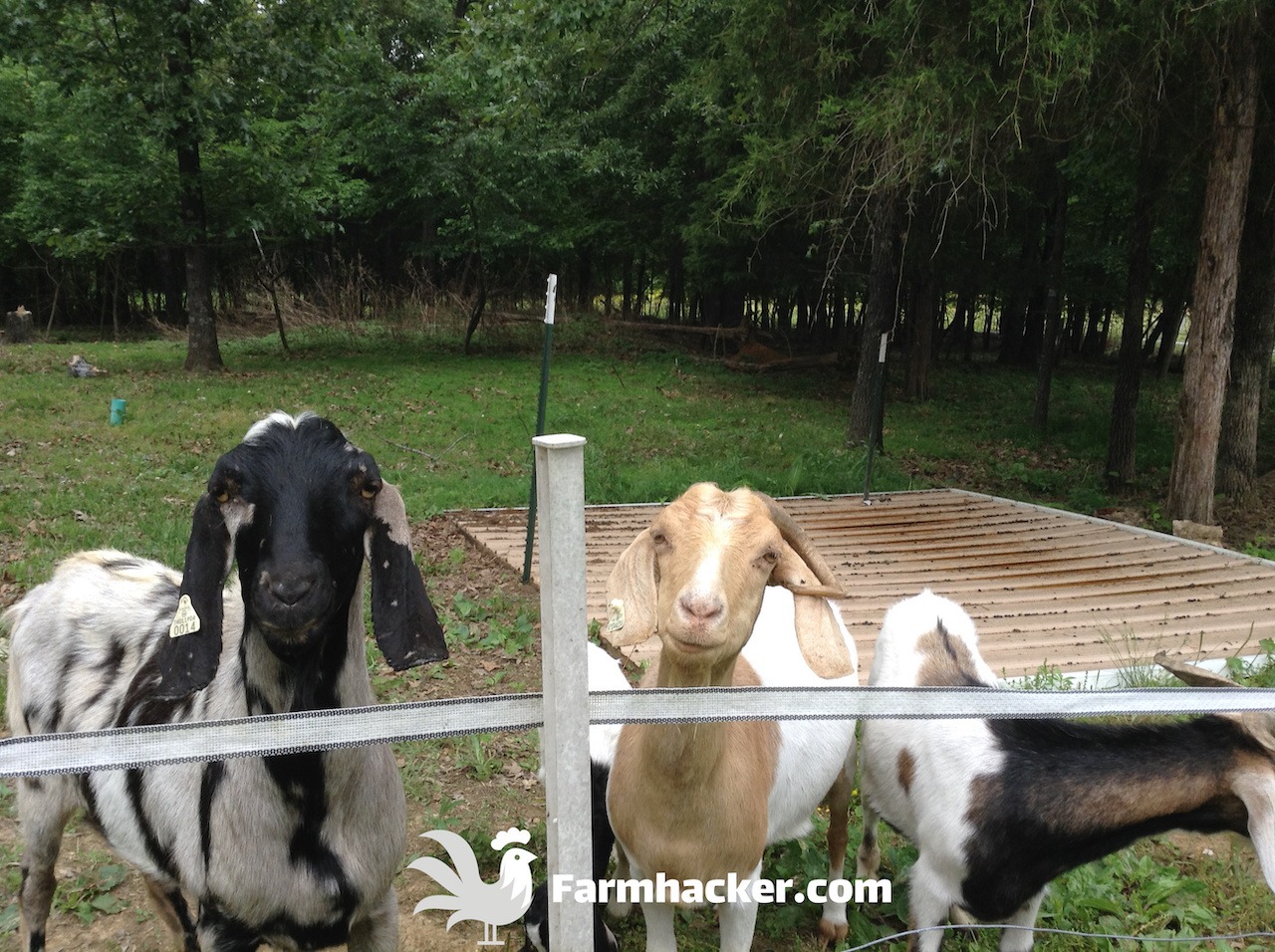
What kind of goat feeder do I need?
The type of goat feeder you need will depend on the type of feed you plan on feeding your goats.
If you plan on feeding them a mixture of both hay and grain then there are multipurpose feeders that are made just for that. They have a hay holder in the top and a feed tray in the bottom.
If you plan on only feeding them only grain then a trough style feeder will work best. Some of the trough style feeders can attach directly to a fence to keep them secure.
Check out this article on the Best Goat Feeders to help you pick out the right one based on the type of feed you will feed your goats.
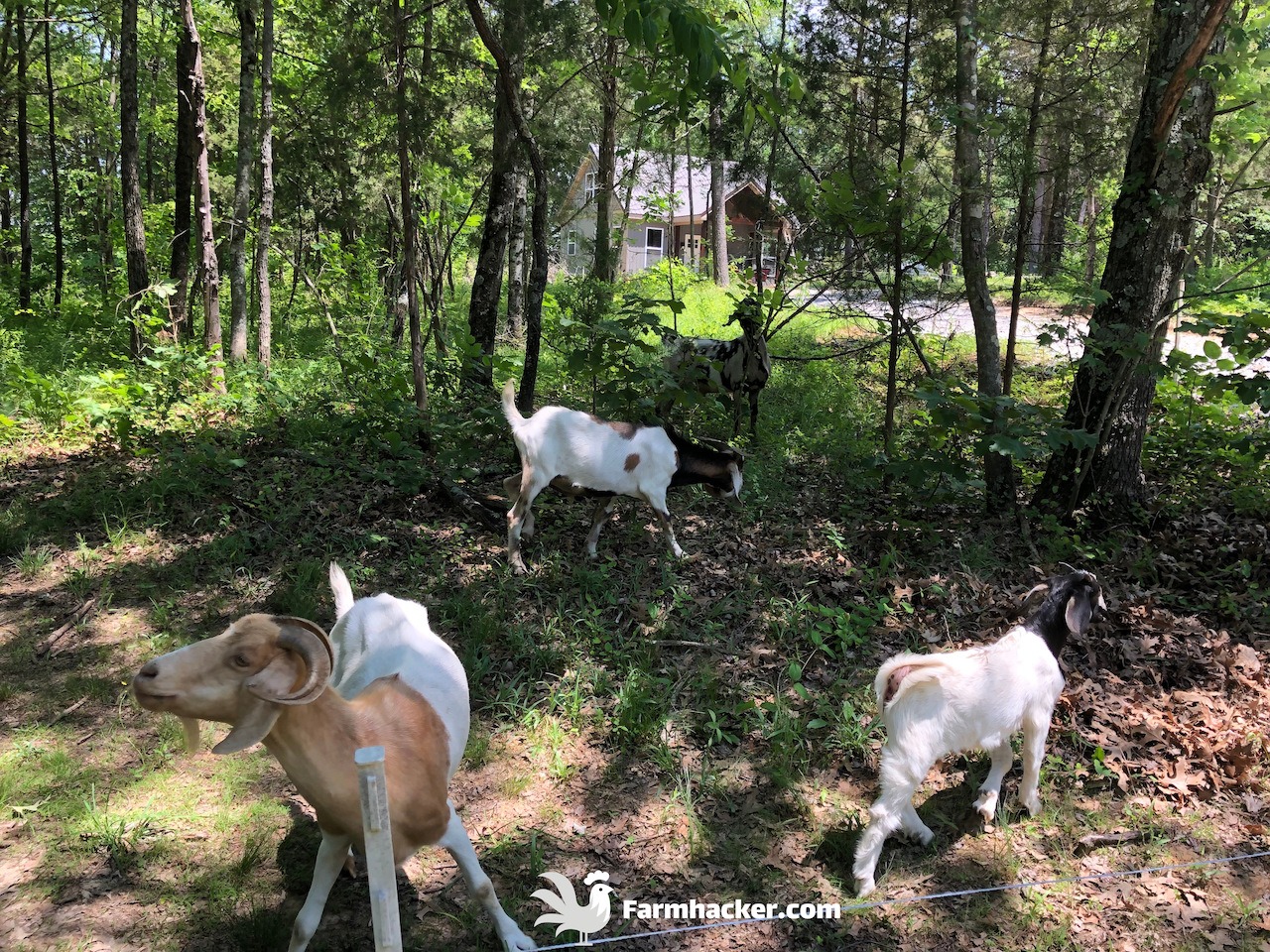
What kind of goat waterer do I need?
When choosing a goat waterer, you have a few different options.
One option is to buy an automatic goat waterer that attaches to a fence. These are typically smaller but easier to keep clean. You can connect a garden hose to them to keep them full.
Another options is to set up a trough style goat waterer that you either fill up manually or automatically with a float valve.
Check out this article on the Best Goat Waterers to learn more about these different options.
In the winter, you will need to make sure your goat water doesn’t freeze. Check out this article on How to Keep Goat Water from Freezing to see what I use on my farm.
What type of goat shelter do I need?
When deciding which type of goat shelter to build or buy, there are a few things to keep in mind.
Make sure whatever you use as a shelter has plenty of room for all of your goats to fit in comfortably while keeping them out of the sun, rain, snow, and wind.
In the winter, it will need to be enclosed on all sides so your goats can stay warm. I load mine down with hay in the winter so they have bedding and food.
As far as styles go, you have several options.
A lean-to shelter can be a cheap way to build a goat shelter quickly. Simply build a structure that leans up against an existing structure like a barn, shed, or house. This can save you a lot on material costs. The main downside to this type of shelter is that it isn’t moveable.
An a-frame shelter is probably the next cheapest structure you can build. Simply lean two walls up against each other and secure each wall together using bracing on the front, back, and inside. Then, install a back wall.
You can also build a portable hut that can be moved around with your goats depending on where you will be grazing them. I have made one of these by building a typical shelter but installing runners on the bottom using PVC pipe that allows it to slide across the ground when I pull it with my tractor.
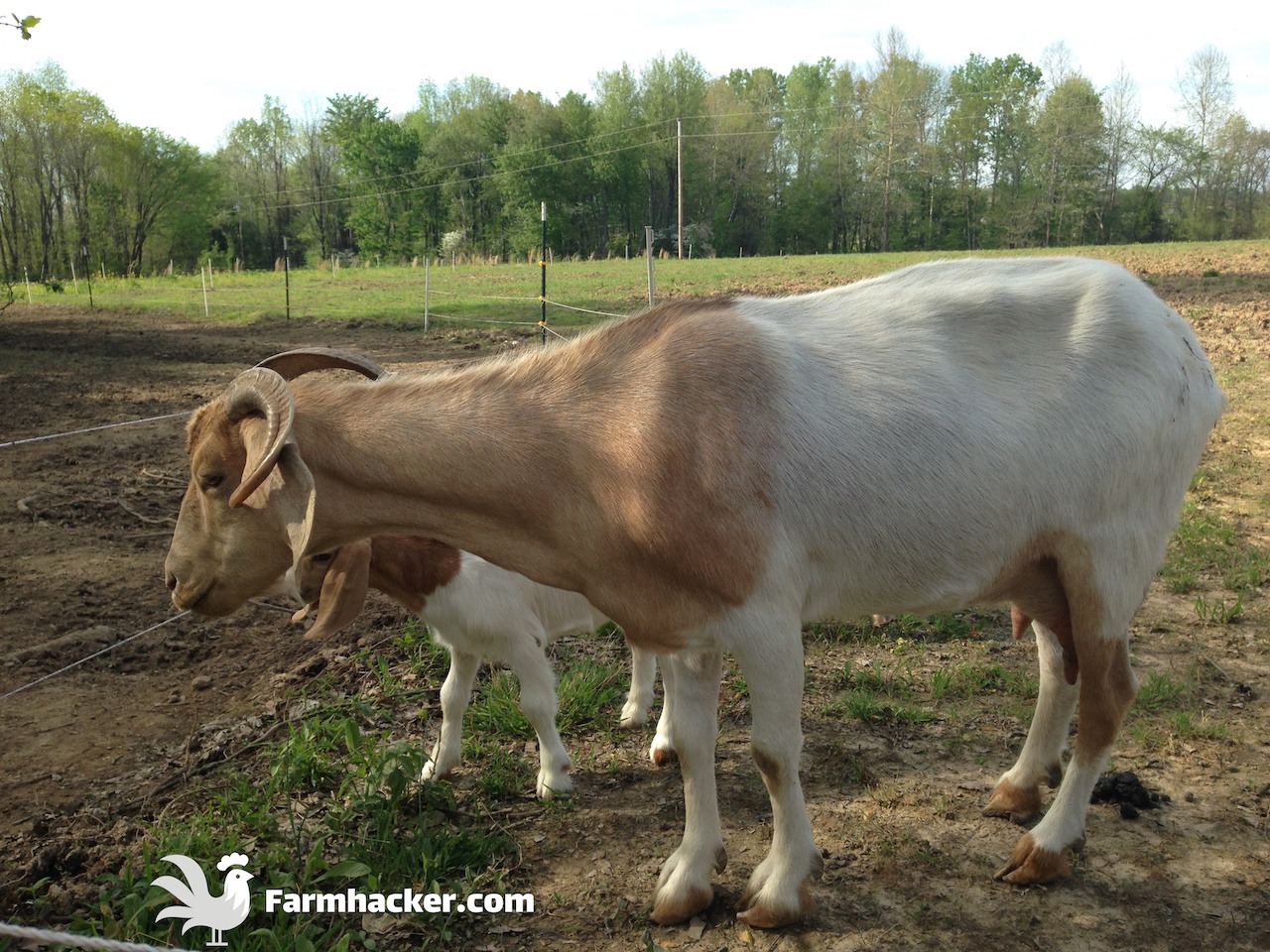
What type of goat fence do I need?
Out of all of my farm animals, goats have been the hardest to keep in. If they want out bad enough, they seem to always find a way.
On my farm, I primarily use electric polywire fences to rotate my goats through paddocks. They typically require a few more strands of polywire than my other fences but once the goats are trained to electric, it works great.
This is not the case with all goats though. I used to have a pair goat sisters that were really good escape artists. They would push right through my polywire fences without caring about getting shocked. I had to keep them in with portable electric goat netting instead.
Another option for goat fencing is to build permanent paddocks using woven wire fence. This is the most expensive option but is a good long term solution if you plan on keeping your goats in the same place for long periods of time.
Check out this article on the Best Goat Fences to help you figure out which fence will work best for your goats.
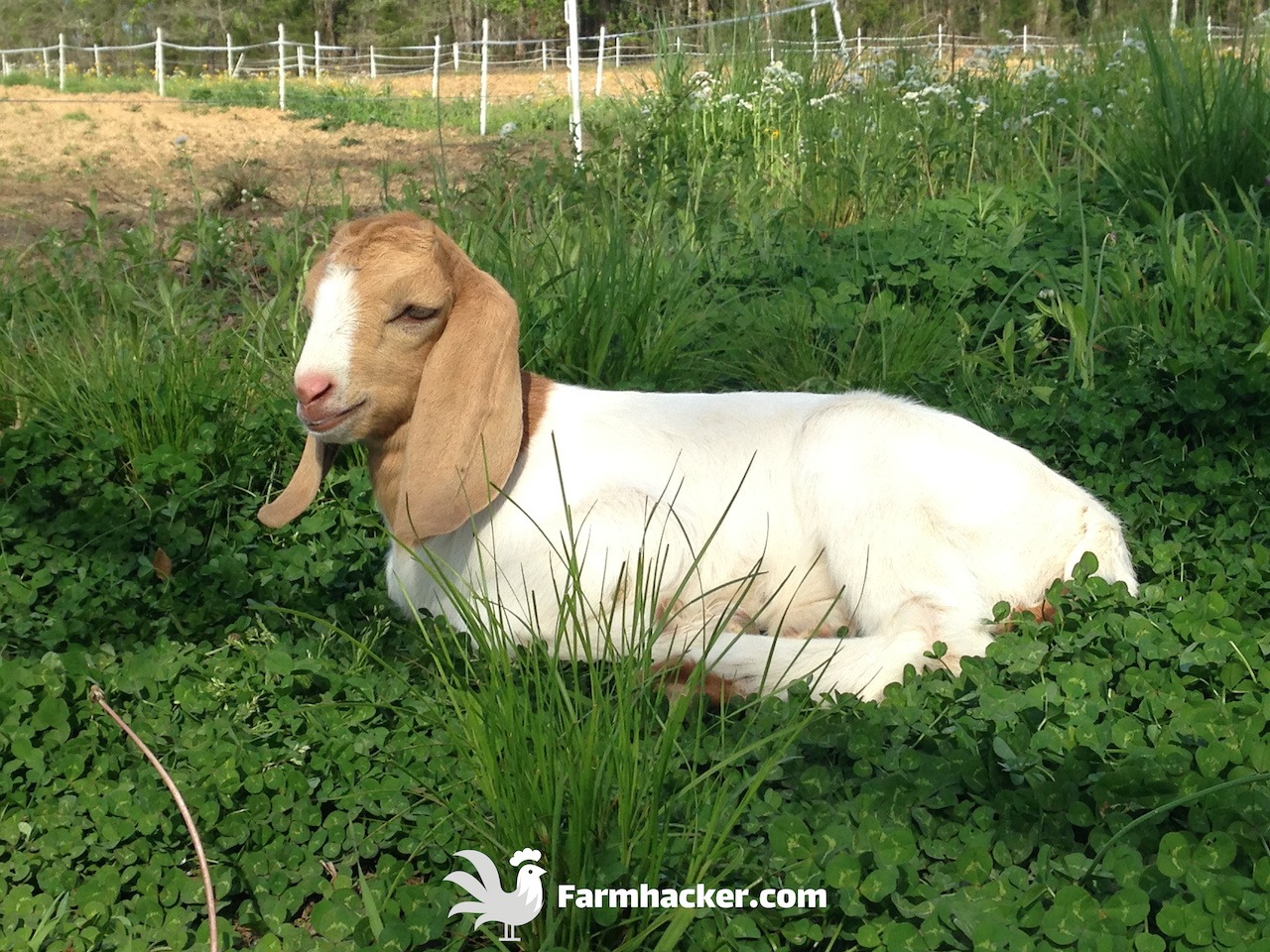
How do I take care of goats?
Goats are very easy to take care of. As long as they have enough food, shelter, and water they are pretty content. And if you have a good fence system then they should stay put.
If you want an easy way to lead your goats around, you should get a goat halter along with a lead rope. Check out this article on the Best Goat Halters to find one that will work well for your goats.
One of the hardest things about taking care of goats is that they are prone to getting stomach worms. If these are left untreated, your goats may become anemic and die.
Some goats, and even specific goat breeds like Spanish Goats, are more tolerant to worms. I have primarily owned Nubian goats and about half of them would need goat dewormer at least once every summer.
One easy way to tell if a goat has worms is to gently pull down on their eyelid below their eyeball. If the eyelid itself is red or dark pink then the goats probably don’t have worms. If the eyelid is white or light pink then they probably do have worms.
If your goats do have worms, there are several treatment options available. Check out this post on the Best Goat Dewormers to learn about the various treatments for getting rid of stomach worms in goats.
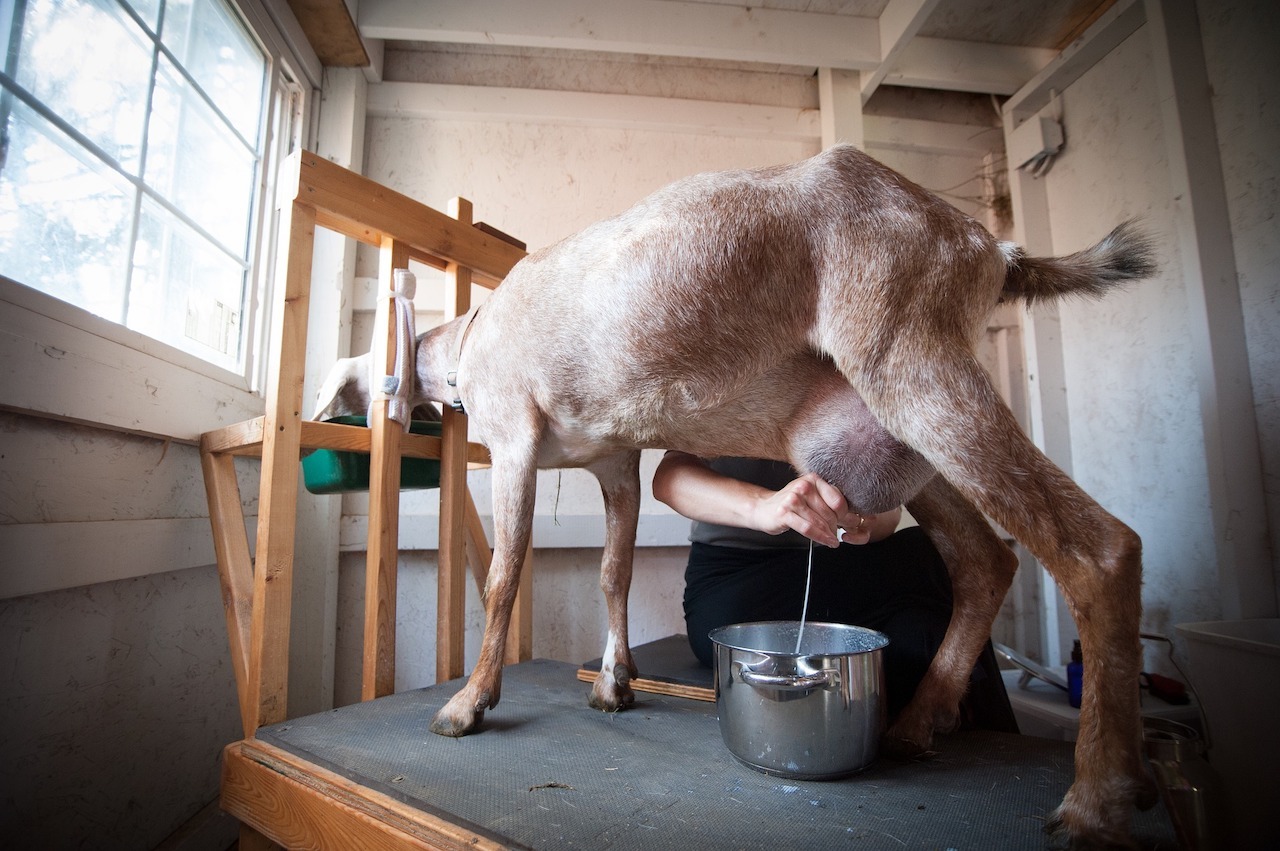
How do I sell goat milk?
Goat milk is more like human milk than cow’s milk. It is also easier to digest and contains additional nutrients that other milks don’t.
Some people that have lactose issues with cow milk don’t with goat milk. Because of this, there may be a demand for raw goat milk where you live.
In the United States, raw milk laws vary state-by-state. Some states allow retail raw milk sales while others allow farm-to-consumer sales.
Other states allow raw milk sales if the buyer is technically a legal owner by owning a share of the animal. This is called a herdshare and requires a contract between you and the raw milk consumer.
Since raw milk laws can be tricky, I recommend that you check out the Farm-to-Consumer Legal Defense Fund’s interactive raw milk map to see what your state allows.
I also highly recommend that you join Farm-to-Consumer Legal Defense Fund if you are planning on selling raw goat milk. They will help you figure out what your state allows and provide you with proper contracts and legal advice to make sure you stay legal.
How do I sell goat meat?
Goat meat can be more healthy for you than other types of meats. However, in the United States it is not as popular as other meats.
So, if you want to sell goat meat, you will need to do a little research to figure out of if there is a market for it in your area. If not, maybe you can create a market for it by informing others of the benefits.
If you are near a large city, I would recommend checking out the farmers market and find out if others are selling goat meat. If they are, ask them how well it sells.
Also, if you want to sell goat meat to the general public in the United States then you will need have your goats processed at a USDA inspected processing facility that will process goats. The costs will vary depending on how large the goat is and what type of cuts you want.
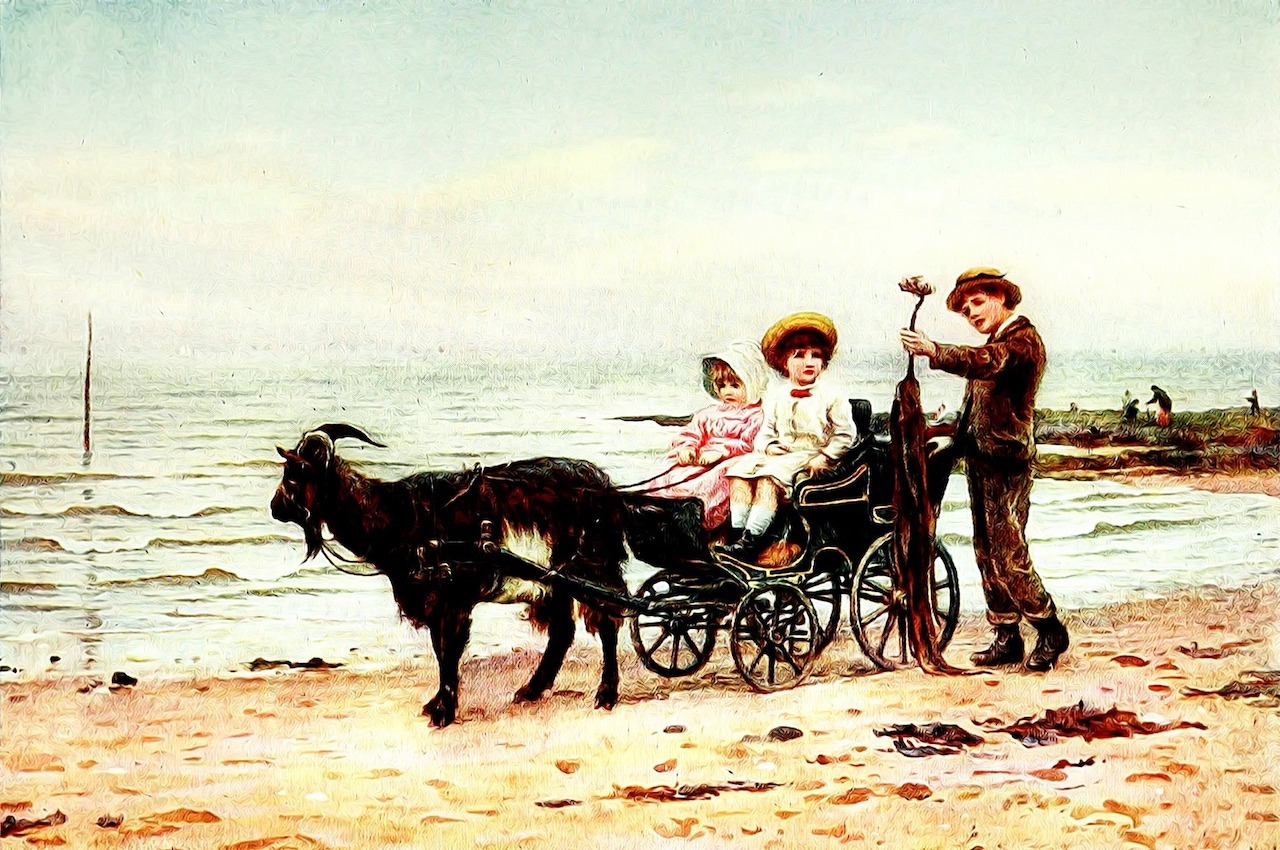
What else can goats be used for?
As I mentioned earlier, goats are a great utility animal. Besides all of their various uses, they make great pets and can be very entertaining.
Did you know that you train goats to pull a cart? It’s true. You can buy a special pulling harness for goats that can be attached to a cart just like you can with horses. Check out this article on the Best Goat Harnesses to learn more.
Conclusion
I hope this guide was able to answer most of your questions about raising goats. Goats are awesome animals and I’m confident you will enjoy raising them.
If you have any questions, feel free to post them in the comments below.


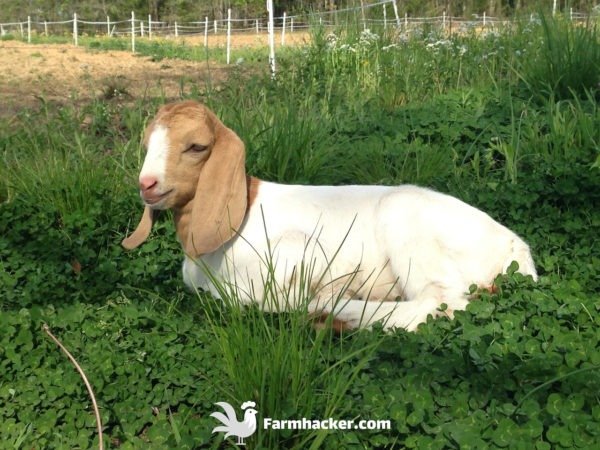
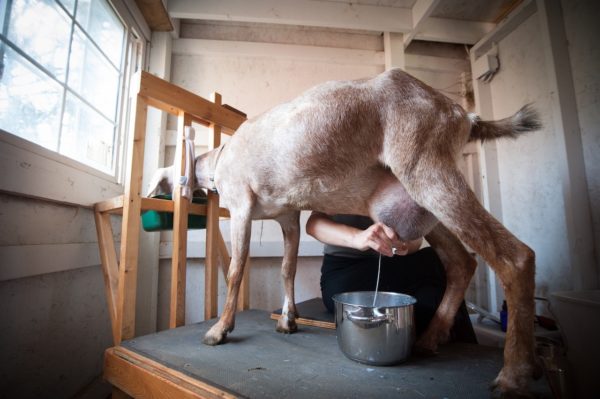
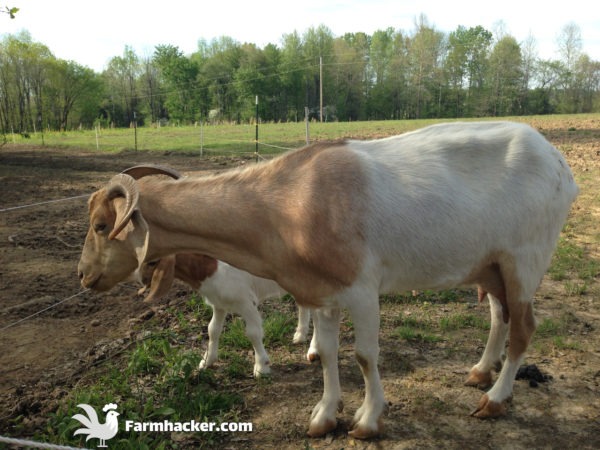




I thank you for the information.
I like it because it also guides the reader to other articles, which offer valuable information to the same topic.